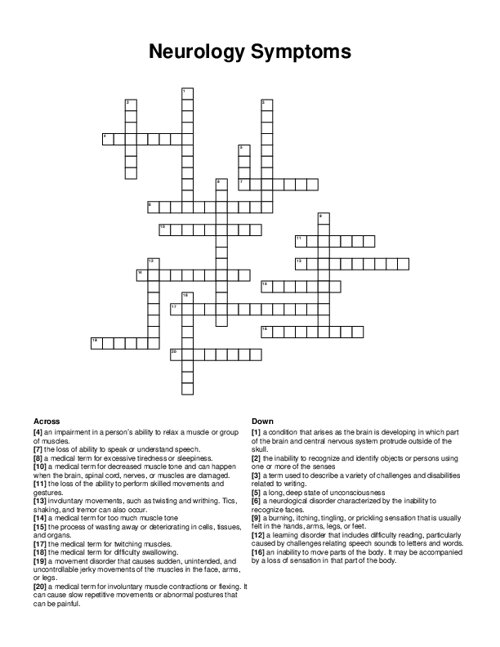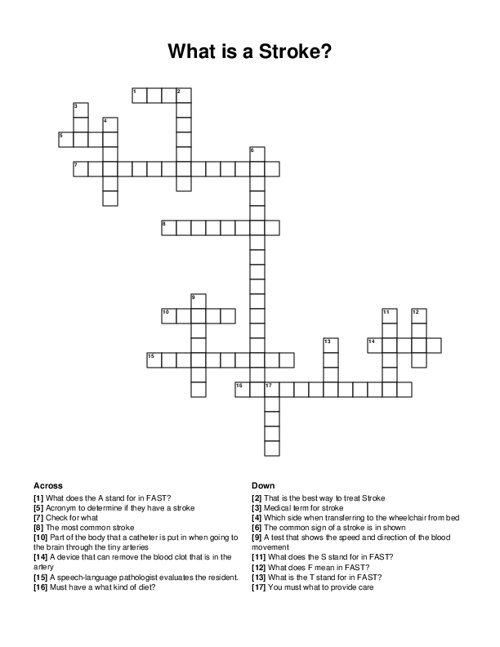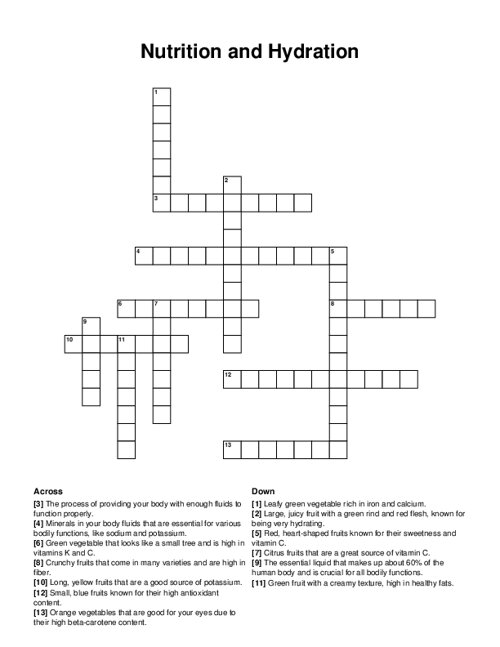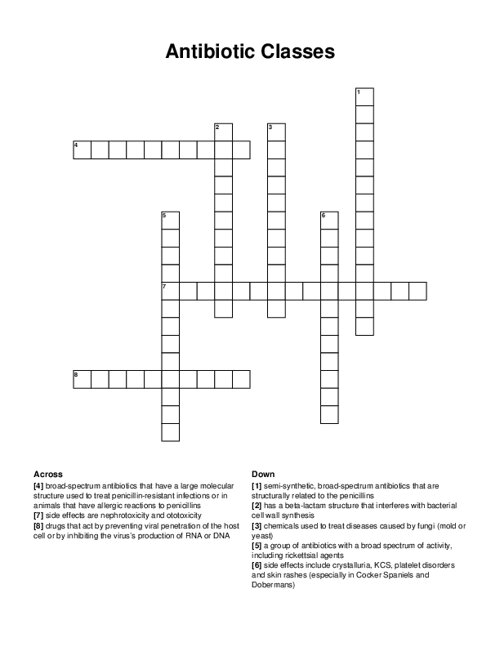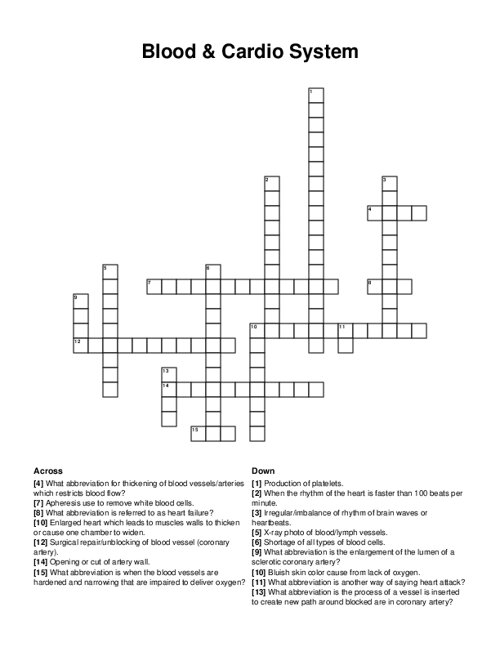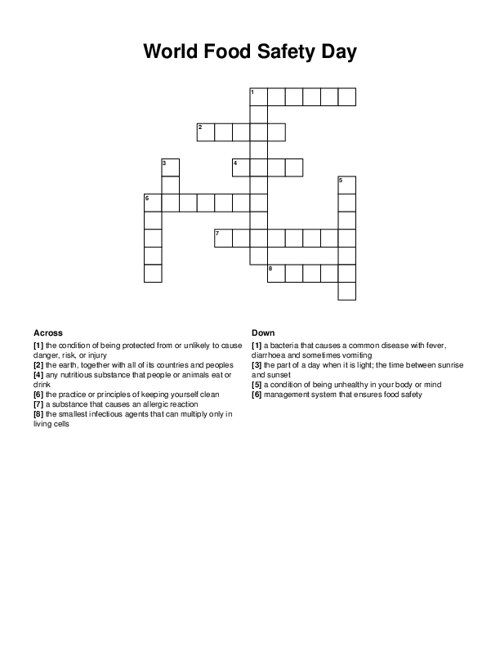Neurology Symptoms Crossword Puzzle
Download and print this Neurology Symptoms crossword puzzle.
Related puzzles:
Browse all Health / Fitness Puzzles
QUESTIONS LIST:
- paresthesia: a burning, itching, tingling, or prickling sensation that is usually felt in the hands, arms, legs, or feet.
- hypersomnia: a medical term for excessive tiredness or sleepiness.
- hypertonia: a medical term for too much muscle tone
- cephalocele: a condition that arises as the brain is developing in which part of the brain and central nervous system protrude outside of the skull.
- dysphagia: the medical term for difficulty swallowing.
- dyskinesia: involuntary movements, such as twisting and writhing. tics, shaking, and tremor can also occur.
- chorea: a movement disorder that causes sudden, unintended, and uncontrollable jerky movements of the muscles in the face, arms, or legs.
- agnosia: the inability to recognize and identify objects or persons using one or more of the senses
- paralysis: an inability to move parts of the body. it may be accompanied by a loss of sensation in that part of the body.
- atrophy: the process of wasting away or deteriorating in cells, tissues, and organs.
- dysgraphia: a term used to describe a variety of challenges and disabilities related to writing.
- prosopagnosia: a neurological disorder characterized by the inability to recognize faces.
- fasciculations: the medical term for twitching muscles.
- apraxia: the loss of the ability to perform skilled movements and gestures.
- dystonia:a medical term for involuntary muscle contractions or flexing. it can cause slow repetitive movements or abnormal postures that can be painful.
- hypotonia: a medical term for decreased muscle tone and can happen when the brain, spinal cord, nerves, or muscles are damaged.
- aphasia: the loss of ability to speak or understand speech.
- myotonia: an impairment in a person’s ability to relax a muscle or group of muscles.
- coma: a long, deep state of unconsciousness
- dyslexia: a learning disorder that includes difficulty reading, particularly caused by challenges relating speech sounds to letters and words.
